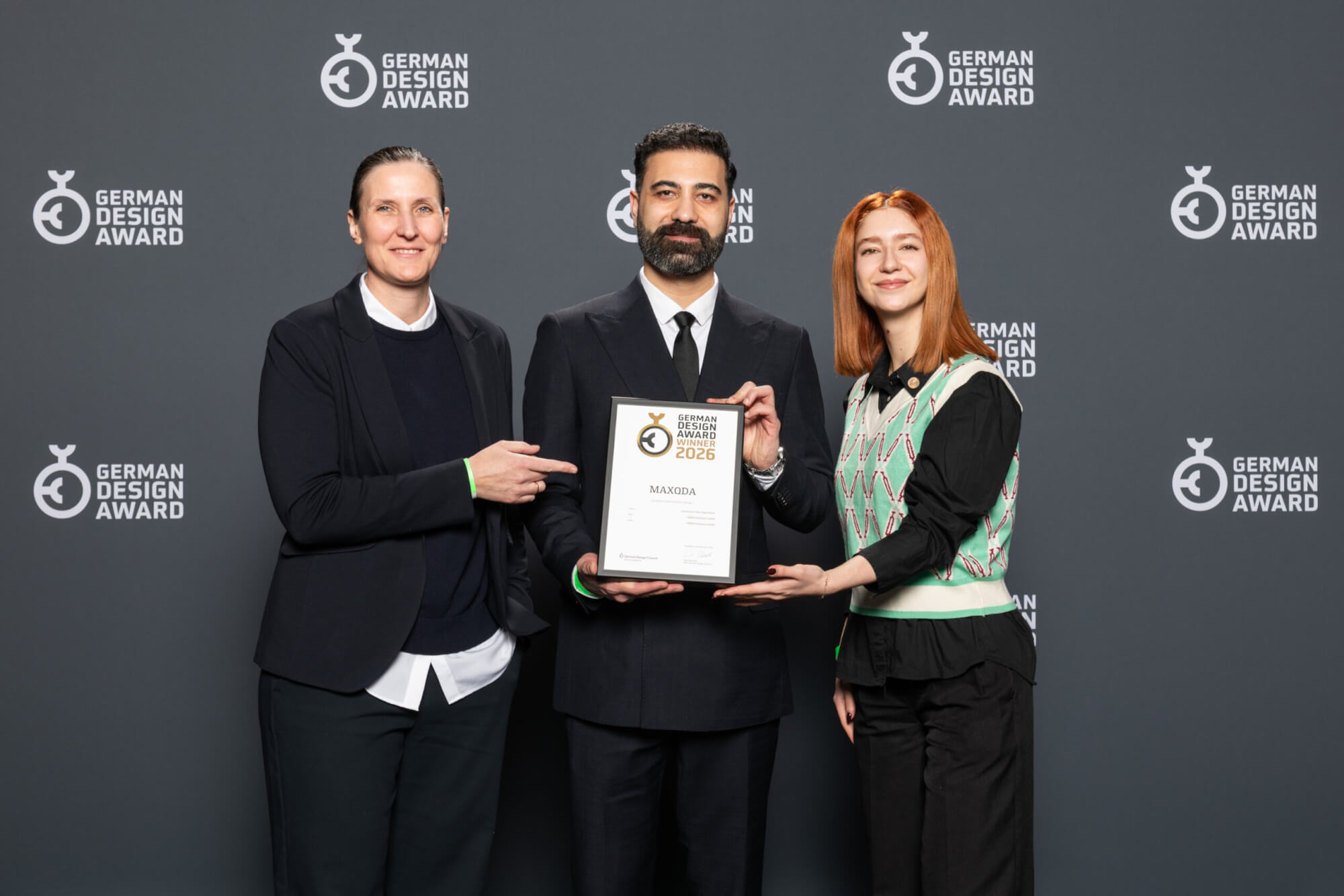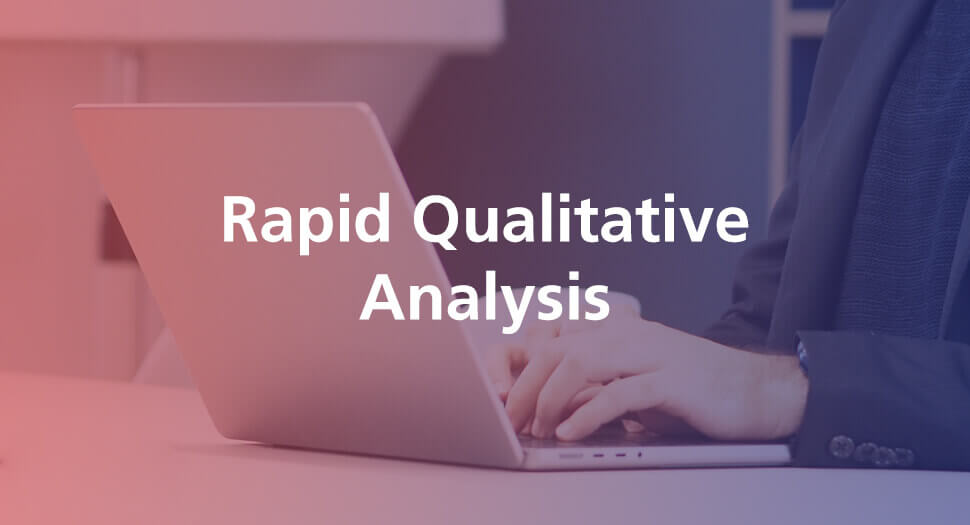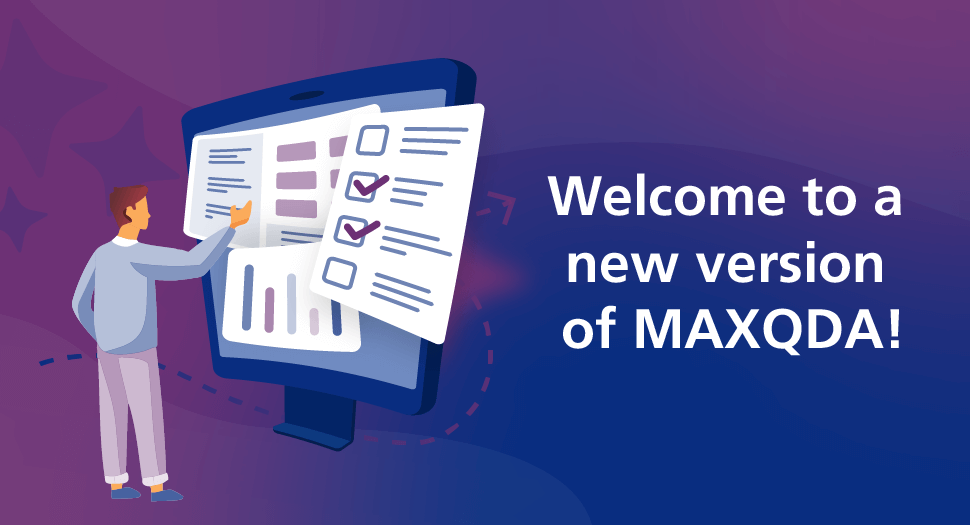MAXQDA at Berliner Methodentreffen 2017
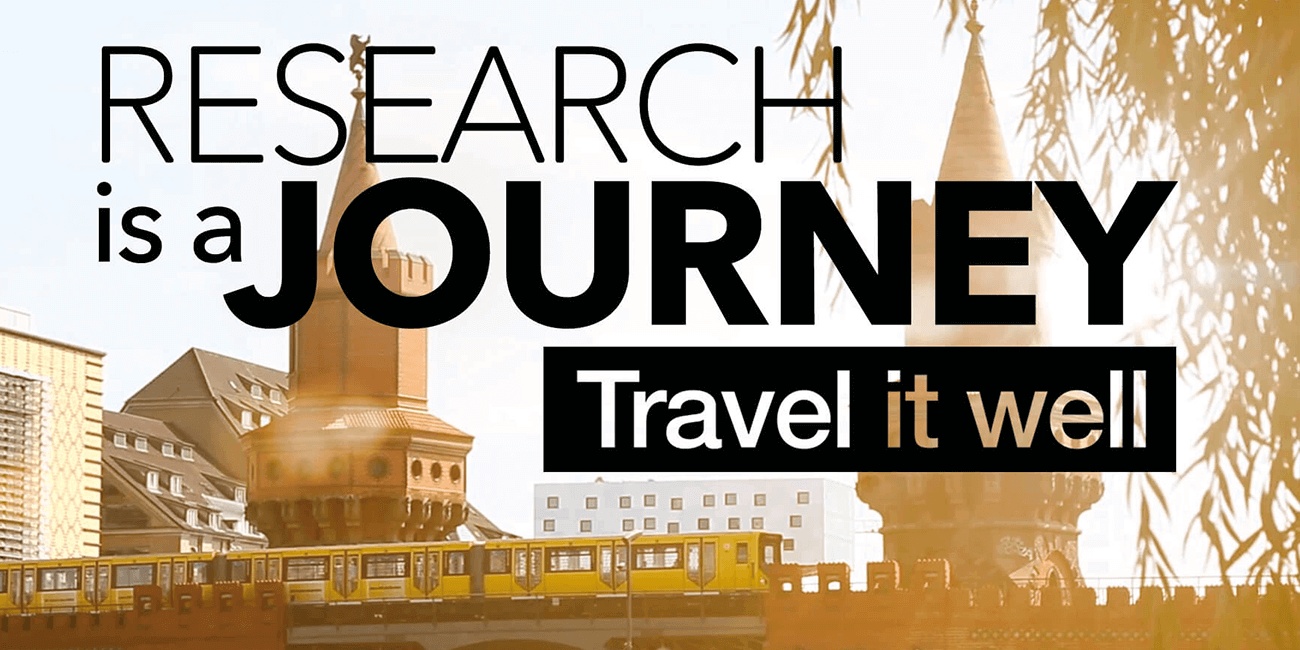
This past weekend marked the 13th edition of the Berliner Methodentreffen (BMT) located at the Freie Universität (FU), in beautiful Berlin-Dahlem. As many of our readers know, MAXQDA calls Berlin, Germany home, so when the largest annual event for German-speaking qualitative researchers takes place in Berlin every summer, our team comes out in full force!
This conference is so popular, that as soon as the sign-up website goes online, hundreds of researchers sign up for the limited spaces and the most popular workshops are sold out within minutes. This year, MAXQDA offered not one, but two workshops catering to both researchers who are new to using qualitative data analysis software as well as old pros who were looking for expert advice and insights by our professional staff of trainers. Find out more about our MAXQDA workshops below!
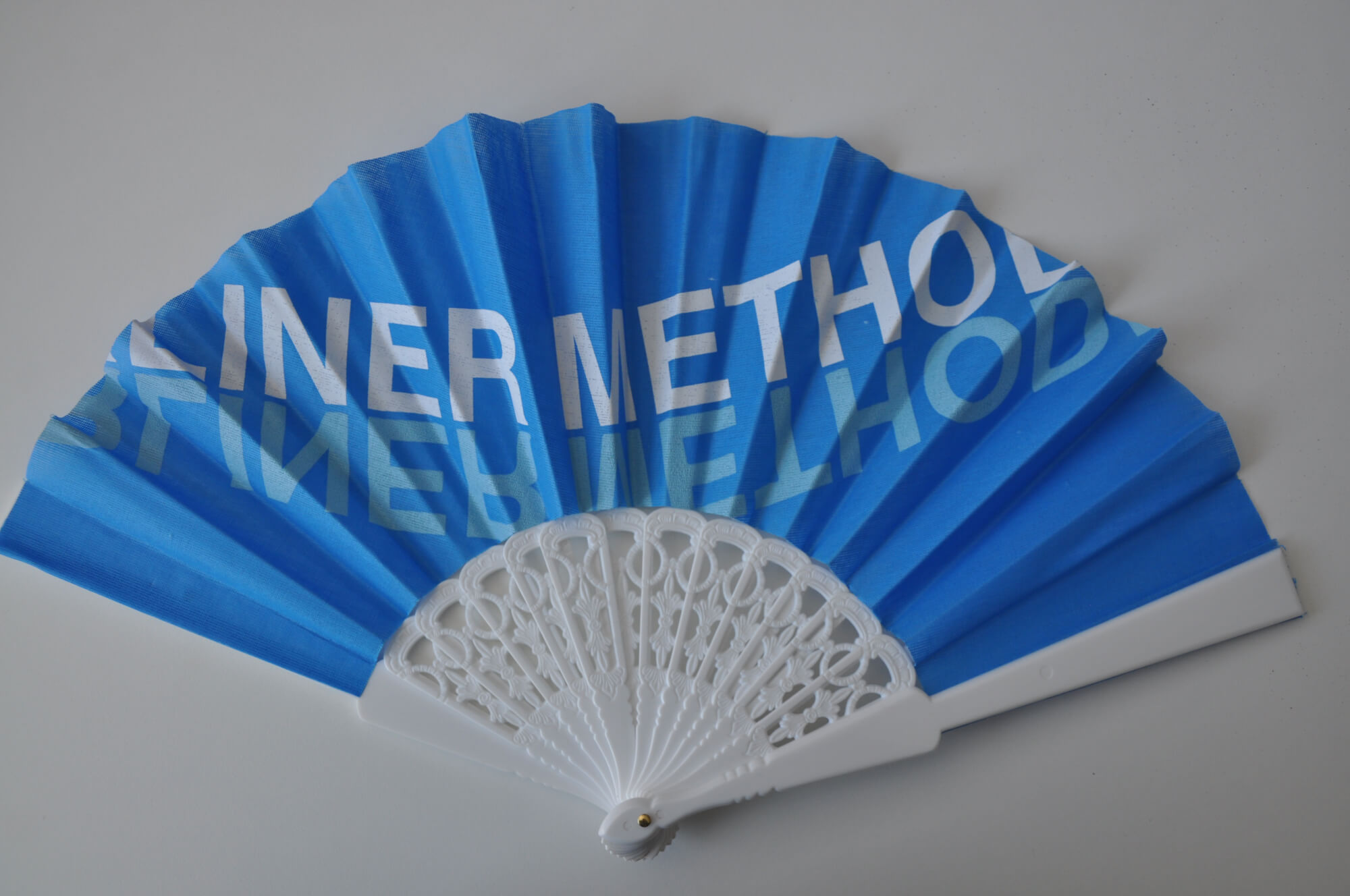
If you would like to stay informed about next year’s meeting
and have a chance to participate, sign up for the BMT newsletter!
The MAXQDA Booth
We also offered free demos and took questions in our booth, conveniently located just across from the registration area. It was such a pleasure meeting fellow researchers and methodology enthusiasts! Visitors to the booth had a chance to enter our special BMT raffle and win a free MAXQDA Analytics Pro license, as well as browse a selection of books on qualitative data analysis, and collect fun free items like bags, post cards, notepads, pens, and of course candies.
However, the most important accessory is found at the conference is usually the free fan supplied by the organization staff due to the sweltering heat in mid-July. Luckily this year’s meeting strayed from the norm and offered bearable temperatures in both the meeting halls and the workshop rooms.
Opening Lecture – Ethical Relationships in Qualitative Research
After the opening greeting from Guenter May (FQS), Rainer Westermann (FU Berlin), and Gudrun Lörher (Hans Böckler Stiftung), Hella von Unger (Professor for Sociology at the LMU Munich) took the stage for the opening lecture on „Research relationships in qualitative research: presentation, analysis, and research-ethical reflection”, (original German: “Forschungsbeziehungen in qualitativer Forschung: Gestaltung, Analyse und forschungsethische Reflexion”).
Hella von Unger took us back to the Marienthal Study conducted in 1930s Austria. One of the first mixed methods research projects, none of the researchers were allowed to participate in the study without participating actively in the community of unemployed people being studied. For example, organizing a clothing-drive or putting in time at health clinics. This lead to social relationship building, and for Marienthal, the ethical concerns centered around the reciprocity of the research process for both sides. Prof. von Unger went even further and proposed to the audience that the research of suffering may only be conducted in an ethical manner when the research has the clear goal of effecting the mitigation of hardship.
After this powerful statement, she went on to talk about participatory research, social justice research, and the need for critical self-reflection by the researcher into their role in the research relationship, leaving us with three main suggestions:
- More participatory research needs to be conducted in Germany.
- Analyze research relationships.
- Research-Ethical Reflection.
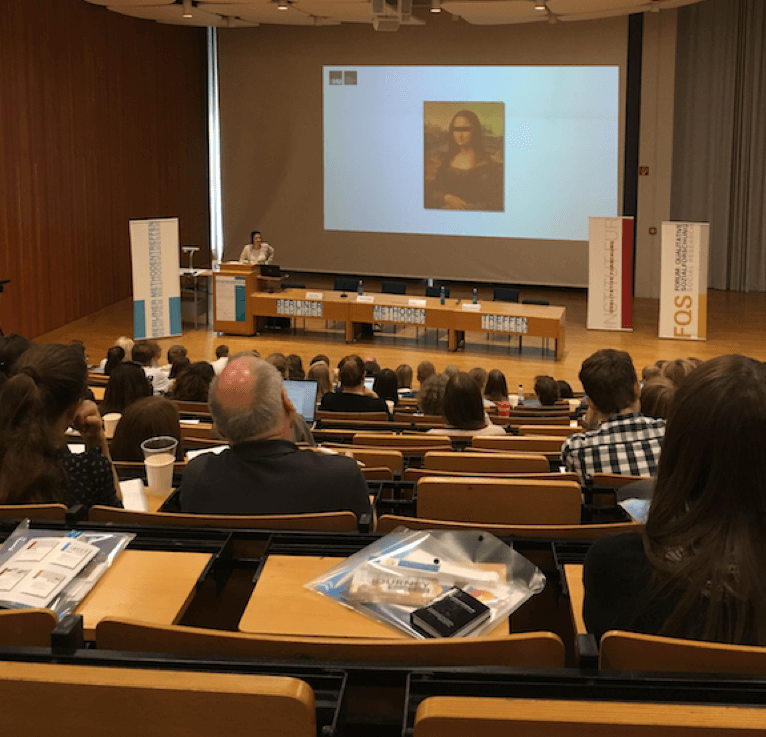
Research is never located “outside of the world”. In other words, it does not exist in a vacuum. Currently, researchers are missing out on the chance to center their research on questions that hold true relevance to the “real life” of the participants. Cooperation between German-speaking researchers and their research participants should already begin during the defining of the research questions and during the analytics phase.
According to Prof. von Unger, we, as a community must ethically address concerns in qualitative research like the anonymization of gathered data. For example, when conducting biographical research, how does one change a person’s biography enough to the point where their identity is truly secure? And once this is done, what effect will it have your research itself? Or, how can expert interviews be anonymized while still clearly portraying the weight of their position?
We found the questions and considerations posed by Prof. von Unger fascinating and hope that this quick summary of her talk will be useful to you as well! Exchanging ideas and learning from one another’s research makes us all methodologically, as well as ethically stronger.
Find out more about other research projects here!
Poster Session – Apples and Witches
Another great event offered by the BMT is the “Poster Session”, where participants are given the opportunity to present their current research projects using posters. The poster session creates a unique space in which you can learn about the latest methods trends, network, and to see all the developmental stages of qualitative data analysis, from research design to methodological development to results. We loved it and gained really interesting insights into the state of qualitative and mixed methods research in Germany.
To learn more about how Andreas Müller showcased his distribution analysis,
intersectional analysis, and structural analysis, using MAXQDA Visual Tools, click here.
We were especially delighted to meet Andreas Müller, who utilized several MAXQDA visualizations to report the results of his study of witch trial transcripts. Titled “Apples and Witches? Findings from a Comparative Content Analysis Study” (original German: “Hexen und Birnen? Befunde einer vergleichenden Inhaltsanalyse“), Müller showcased a creative mixed method study about the German witch trials of 1584 in Rostock and 1617-1618 in Hainburg. He is currently at the University of Vienna, and has focused his master’s thesis on applying modern software, such as MAXQDA, to traditional research areas. Great job Andreas!
Workshops – Max Capacity at MAXQDA
Among the large number of workshops offered by the BMT over the weekend, we offered two MAXQDA workshops: The course “Introduction to MAXQDA” was aimed at participants who have not yet had the opportunity to conduct in-depth data analysis with MAXQDA. For participants who already had previous experience with MAXQDA or other QDA software, we offered a workshop called, “MAXQDA for advanced students – focus on mixed methods.
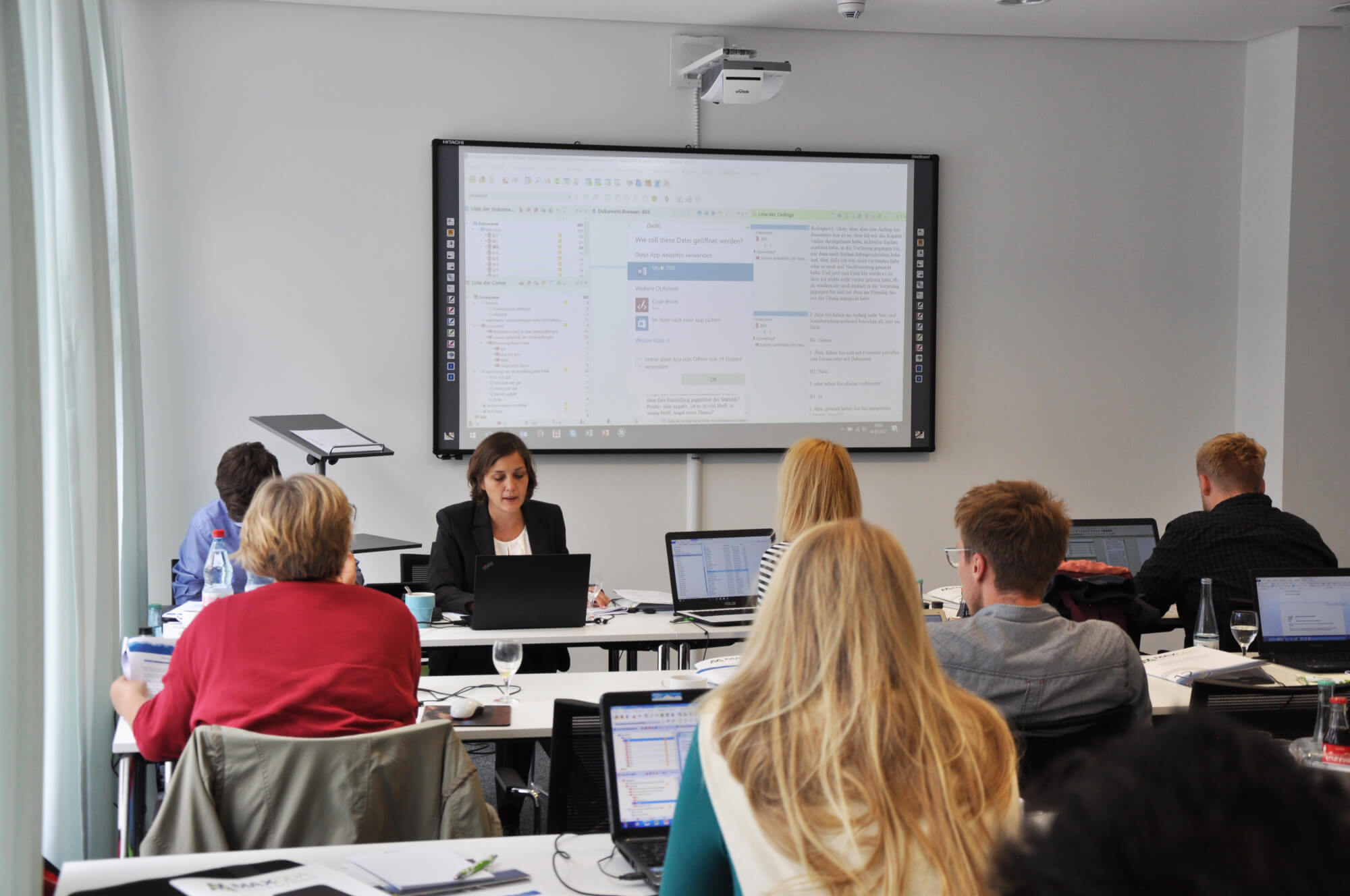
Both workshops were fully booked and a complete success! Researchers from different disciplines participated and learned about several MAXQDA functions by applying sample projects directly to practical exercises. This lead to varied and exciting exchanges discussing the application of qualitative method approaches in qualitative data analysis software.
What is a MAXQDA Workshop like?
The introductory workshop gives a good overview of how MAXQDA can strengthen the research process and support users in their research journey. Our goal in introductory training seminars is to present MAXQDA in a simple and straightforward manner so that anyone can get going on their research project right away.
When you participate in one of our trainings, our experts will also point out specific MAXQDA functions, shortcuts, and tricks-of-the-trade that make the evaluation process of qualitative data easier than ever! For example, at the BMT we highlighted the use of keyboard shortcuts and MAXQDA’s info button, which helps users find the information they are looking for by bringing them directly to the relevant online tutorial.
Many researchers find that value can be added to their projects by combining qualitative and quantitative methods, leading to well-rounded results. MAXQDA supports mixed methods data collection and evaluation methodology by offering diverse evaluative functions. For example, in MAXQDA frequency tables of codes and variables can be easily created and then be seamlessly visualized to customizable diagrams.
Advanced MAXQDA workshops are perfect for our mixed-methods enthusiasts! During these training seminars, participants have the opportunity to take deep-dives into specific features of MAXQDA, which can be particularly important for the evaluation of mixed-methods data. We also present the functions of the MAXQDA STATS module in advanced workshops, which enables the evaluation of qualitative data or Excel and SPSS files.
You can also find an overview of all MAXQDA courses, which can be carried out either at our location in Berlin or at other locations worldwide by MAXQDA trainers, by clicking this button:
Check out more photos of MAXQDA at the BMT 2017 on our social media (![]() @VerbiSoftware
@VerbiSoftware
![]() @MAXQDA) and stay up-to-date on MAXQDA news and all of our upcoming training offers by subscribing to our Newsletter!
@MAXQDA) and stay up-to-date on MAXQDA news and all of our upcoming training offers by subscribing to our Newsletter!

